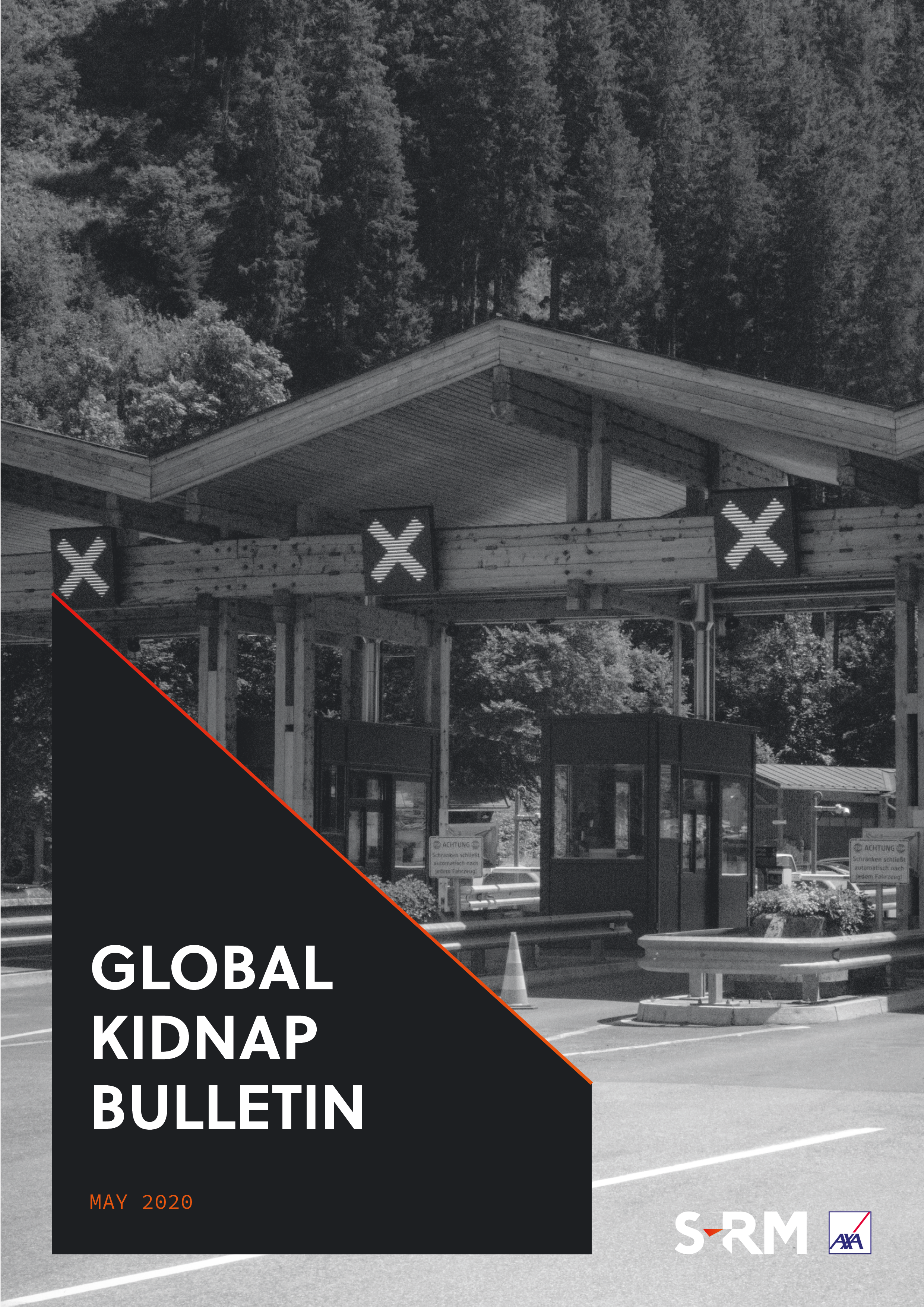1. Afghanistan
Kidnapping
On 6 February, reports emerged that a US security contractor was kidnapped in Khost Province on 31 January. The former US Navy member was near the Pakistani border when the incident happened. No group has yet claimed responsibility, and it is not known whether a ransom has been demanded. Conflicting reports have emerged pointing to either the Taliban or the Taliban-affiliated Haqqani Network as the group responsible.
2. Thailand
Kidnapping
On 9 January, a 32-year old Singaporean businessman was kidnapped in Bangkok and taken to several forested locations where he was tortured by his captives. He was released on 13 January after he paid a ransom of USD 62,500 in bitcoins. Thai security forces subsequently arrested a Singaporean man for masterminding the kidnapping. He is reported to have travelled with the victim to Thailand to negotiate a business deal. The victim is reportedly a blockchain expert.
3. Iraq
Kidnapping
On 27 March, French authorities announced the release of the four Christian charity workers from the SOS Chrétien d’Orient (Christians of the Middle East) group who had been abducted near the French Embassy in Baghdad on 20 January. The circumstances regarding the abduction and release of the three French and one Iraqi worker are not known. No group has claimed responsibility. In a separate incident in Baghdad on 1 January, Iran-backed Shi’a militias abducted two French journalists during a violent protest at the US Embassy. They were released unharmed within a day.
4. Latin America
Extortion
Cartels in Latin America are increasingly adapting their extortion methods amid the Covid-19 pandemic. With thousands of people losing their sources of income due to business closures and physical distancing measures, cartels like Barrio 18 in El Salvador have announced an indefinite waiver on extortion payments for street vendors in San Salvador, while two major gangs in Guatemala agreed to suspend extortion collections for one week in March. However, prominent gangs in Mexico, such as the Unión Tepito, which operates large extortion networks in Mexico City, have demanded that businesses maintain payments. They will likely employ more violent tactics to force compliance among businesses that are still expected to pay. Furthermore, when lockdown measures are lifted, cartels which have granted waivers may increase their extortion demands to offset the shortfall, and likely prompt further violence against businesses and individuals who are unable to pay the increase.
5. Mexico
Crime
Over the past month, criminal groups in Sonora State have staged at least two armed robberies against mines operating in the area. On 26 March, criminals stole undisclosed property during a robbery at a silver mine in the Caborca Municipality, while on 8 April, perpetrators stole gold and silver bars worth USD 3 million from a mine in the Salamandra Concessions. These robberies occurred as mines continue to wind down operations due to the Covid-19 outbreak. Criminals have demonstrated high levels of capability and organisation, with the perpetrators of the latest attack loading the bars into a small plane before escaping the area. As these groups’ extortion and drug trafficking activities subside amid the outbreak and related lockdown measures – and as they start exploring other sources of revenue – precious metal mines could become attractive targets.
6. Yemen
Kidnapping
On 20 March, UAE authorities reported that two Emirati aid workers were kidnapped and killed in the city of Aden, southern Yemen. No group has yet claimed responsibility. Available information indicates that since the start of the ongoing civil war in 2015, at least 70 aid workers have been victims of kidnapping, assault, shooting and bombings, with more than two dozen killed. The actual number of victims is likely to be much higher. All major players in the conflict, as well as Islamist militant groups, have directly or indirectly attacked aid workers since the conflict started.
7. Ukraine
Extortion
On 2 April, Ukrainian authorities reported the arrest of a criminal group involved in extorting money from businesses in Ternopil City, Ternopil Oblast. In one reported incident, the group extorted USD 7,400 from a businessman, while two other victims reported paying extortion fees of USD 3,500. Such extortion groups commonly operate throughout the country, although they primarily target local businesses rather than foreign nationals and companies.
8. South Africa
Extortion
On 9 April, police arrested three police officers for alleged bribery and corruption in Tshwane, Gauteng Province. The officers stopped a vehicle that was being driven by a foreign national and threatened to impound his vehicle unless he paid them USD 370. Police followed the man to his home and settled on a bribe of USD 185. According to the Independent Police Investigative Directorate (IPID), incidents of police corruption and extortion have increased since the start of South Africa’s national lockdown on 28 March. This is mainly because police officers have been given discretion to decide whether or not members of the public are flouting lockdown regulations.
9. Mali
Kidnapping
On 25 March, unidentified gunmen ambushed the convoy of Soumaïla Cissé, leader of the Union for the Republic and Democracy (URD) opposition party, in the town of Niafunké, Tombouctou Region. The assailants killed one person and injured two others before taking Cissé and six other people hostage. No group has yet claimed responsibility for the kidnapping and no ransom demand has been made. Mali’s parliamentary elections were scheduled for 29 March but was later postponed to 19 April due to the kidnapping. It is unclear if the kidnapping was politically motivated. Daily protests calling for the release of Cisse have taken place since 13 April.
10. Nigeria
Kidnapping
On 22 March, two Nigerian professional football players, who represent Enyimba Football Club, were kidnapped while travelling to Akure, Ondo State. The kidnappers contacted the victims’ families and their football club, and demanded a ransom of around USD 21 million before lowering it to USD 475,000 following negotiations. On 25 March, both players were released unharmed.
11. Nigeria
Kidnapping
In April, security forces conducted two raids targeting kidnap rings in the Middle Belt and Niger Delta region, freeing three victims. On 11 April, police arrested dozens of people suspected to be part of kidnap and extortion rings in Rivers State, Niger Delta region. Police were tipped as to the group’s whereabouts by a member of the group who had previously been arrested. Similarly, on 12 April, police arrested 18 people in Central State. The group was targeted due to their involvement in different kidnap incidents across the state.




 Email Markus
Email Markus





 @SRMInform
@SRMInform
 S-RM
S-RM
 hello@s-rminform.com
hello@s-rminform.com

